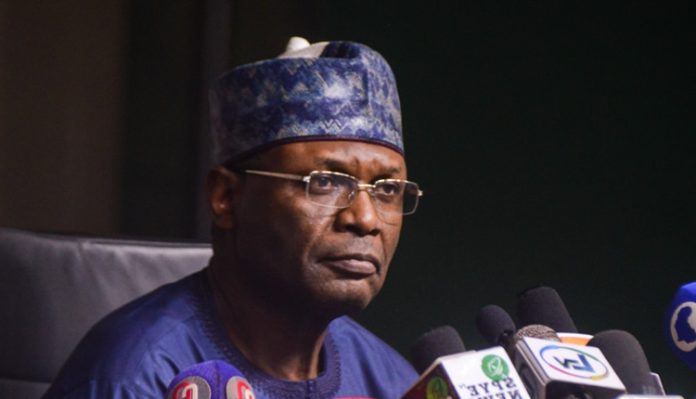CHAIRMAN of the Independent National Electoral Commission, INEC, Prof Mahmood Yakubu, on Thursday said the Commission has identified 142 recommendations on the electoral process.
The recommendations relate to the general state of preparedness, voter management, voter education and public communication, political parties and candidate management, electoral operations and logistics management. They also concern election officials and personnel, partnership and collaboration, monitoring and supervision, election technology, voting and result management, election security, electoral offences and the electoral legal framework.
Yakubu spoke at a meeting with the Resident Electoral Commissioners, RECs, in Abuja on Thursday It was the Commission’s last consultative meeting for the year and it focused on the more detailed issues of planning and learning from the experience of the 2023 General Election.
He explained that out of the 142 recommendations, 86 require administrative action by the Commission.
Yakubu said it was pertinent that the Commission engage first with the RECs because of their frontline role in the implementation of the recommendations.
He also disclosed that 48 recommendations require action by a variety of stakeholders, including security agencies, mobile network operators, statutory bodies, political parties, transport unions, civil society organisations and the media. “There are eight recommendations that require legislative action by the National Assembly. Very soon, the Commission will make a presentation to the Joint Committee of the Senate and House of Representatives on Electoral Matters as they continue to deliberate on electoral reform.
“Among the major highlights of the Commission’s recommendations is the imperative of legal clarity in result management, with regard to manual transfer versus the electronic transmission of results.
“The Commission also believes that with the introduction of the Bimodal Voter Accreditation System (BVAS), the use of the Permanent Voters’ Cards (PVC) as the sole means of identification for voter accreditation on Election Day should be reviewed.
“Those who already have the PVCs can still use them to vote, but going forward, computer-generated slips issued to the voter or even downloaded from the Commission’s website will suffice for voter accreditation.
“This will not only save cost, it will also eliminate the issues around the collection of PVCs and the diabolical practice of buying up the cards from voters in order to disenfranchise them,” Yakubu added.


